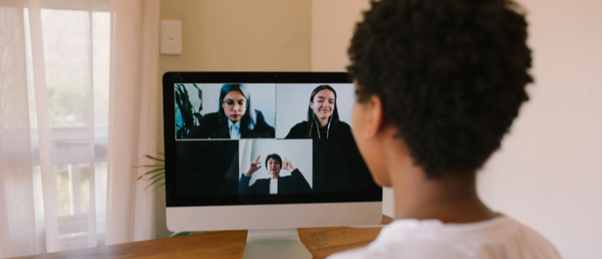Got Zoom fatigue? Turn your camera off

Researchers discover that so-called ‘Zoom fatigue’ can be worse for women and new employees and that turning cameras off during meetings can help.
Do you feel exhausted after a day of virtual meetings? Well, you’re not alone. The shift to remote working due to the COVID-19 pandemic resulted in virtual meetings becoming part of daily life, and along with that came ‘Zoom fatigue’ – the drained feeling that is associated with a day of virtual meetings. Now, researchers from the University of Arizona (AZ, USA) have discovered that women and new employees are more susceptible to this fatigue and that turning your camera off during meetings may help.
“There’s always this assumption that if you have your camera on during meetings, you are going to be more engaged,” lead author Allison Gabriel commented. “But there’s also a lot of self-presentation pressure associated with being on camera. Having a professional background and looking ready or keeping children out of the room are among some of the pressures.”
The study, published in the Journal of Applied Psychology, reported results from an experiment that was conducted over a 4-week period and involved 103 participants and more than 1400 observations. The researchers found that the fatigue can affect outcomes during meetings, for example participant voice and engagement, and that it can affect same-day and next-day performance.
“When people had cameras on or were told to keep cameras on, they reported more fatigue than their non-camera using counterparts,” Gabriel commented. “And that fatigue correlated to less voice and less engagement during meetings. So, in reality, those who had cameras on were potentially participating less than those not using cameras. This counters the conventional wisdom that cameras are required to be engaged in virtual meetings.”
Cutting through the fog: understanding the causes of mental fatigue
A new study provides an explanation for the brain fog often experienced by those with chronic medical conditions.
The team also found that women and new employees were more susceptible to Zoom fatigue, which is likely due to added self-presentation pressures.
“Employees who tend to be more vulnerable in terms of their social position in the workplace, such as women and newer, less tenured employees, have a heightened feeling of fatigue when they must keep cameras on during meetings,” Gabriel explained. “Women often feel the pressure to be effortlessly perfect or have a greater likelihood of childcare interruptions, and newer employees feel like they must be on camera and participate in order to show productiveness.”
The study suggests that there should be less of an expectation for employees to turn their cameras on during meetings and that having your camera on does not and should not correlate with engagement and productivity.
